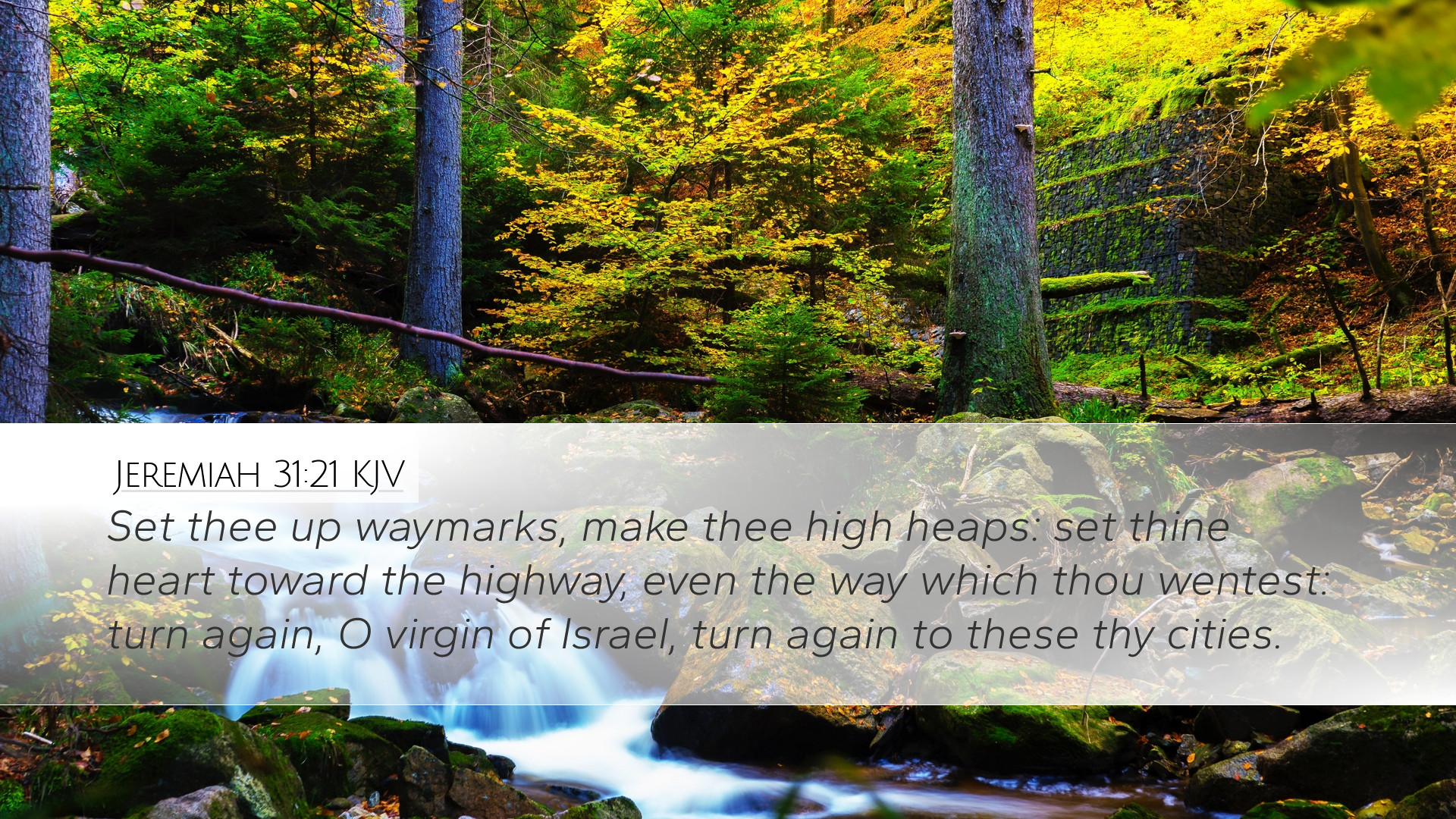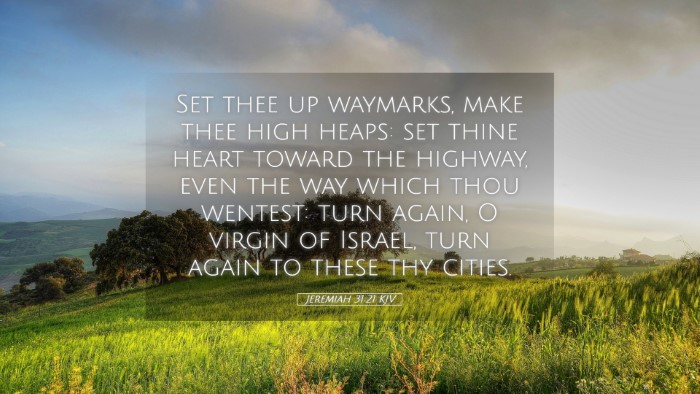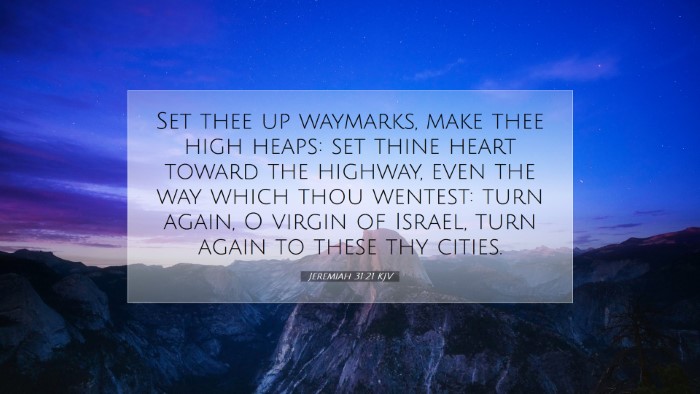Commentary on Jeremiah 31:21
Verse: Jeremiah 31:21 - "Set thee up waymarks, make thee high heaps: set thine heart toward the highway, even the way which thou wentest: turn again, O virgin of Israel, turn again to these thy cities."
Introduction
This verse is a part of the profound restoration promises that fill the Book of Jeremiah. It finds its place in the context of comfort and hope after the devastation of the Babylonian exile. The advice to set up waymarks speaks volumes about the human need for direction and the divine call to remembrance.
Contextual Analysis
Jeremiah, known as the weeping prophet, delivered messages of impending judgment but also of restoration. Chapter 31 is a pivotal chapter of promise where God reassures His people of a new covenant and the eventual return from exile. This particular verse contains imagery that echoes both the physical return to Jerusalem and the spiritual journey back to God.
Insights from Commentaries
Matthew Henry's Commentary
Matthew Henry emphasizes that the command to "set waymarks" signifies the importance of remembrance and guidance. He explains that waymarks serve as reminders of the paths already traveled, urging the people to return to their former state of blessing. Henry elucidates the emotional and spiritual significance of "turning again," which also reflects the restoration of Israel’s relationship with God. He points out that Israel is being called back, not just geographically but spiritually: a return to faithfulness amidst their history of unfaithfulness.
Albert Barnes' Commentary
Albert Barnes provides additional depth to the text, interpreting the "waymarks" as literal and metaphorical markers for the journey back from exile. Barnes posits that these markers are essential for navigation, serving both as a reminder of where they have been and as guidance for where they are going. He stresses that the mention of the "highway" reflects God's providence and sovereignty in leading His people back. The concept of "turning again" is a powerful call to repentance and restoration, underscoring the mercy of God in allowing a way back to Him despite Israel's previous disobedience.
Adam Clarke's Commentary
Adam Clarke, known for his exegetical insights, discusses the cultural significance of "waymarks." He notes that in ancient times, travelers would place stones or other markers to guide those on their journeys. Clarke interprets the "high heaps" as physical representations of God's faithfulness and a testament of the journey ahead. The encouragement for Israel to look back on their paths and to return signifies a spiritual introspection and a need to reassess their commitments and priorities. Clarke emphasizes the emotional aspect of the passage by describing the call of "O virgin of Israel," as an appeal to purity and faithfulness, highlighting the intimacy of God's call and the yearning for His people to restore their covenant relationship.
Theological Implications
- Remembrance: The call to remember the paths leads to a deeper reflection on personal and communal spiritual journeys. This serves as an important reminder for believers today to recognize God's guiding presence and the importance of recalling past blessings.
- Guidance: The act of setting up waymarks can be seen as a directive to establish spiritual disciplines that guide one's faith journey. This can extend to the community of faith, reminding congregations to create supportive environments that encourage spiritual growth.
- Repentance and Restoration: The call to "turn again" is central to the Christian faith, as it stresses the importance of repentance. This verse encourages believers to recognize their need for God continually and to seek His ways, aligning with the New Testament themes of renewal and redemption.
- Divine Sovereignty: Throughout the text, there is a strong reminder that God's plans for restoration are rooted in His sovereignty. He is the one who directs the paths of His people and offers hope for their future.
Conclusion
Jeremiah 31:21 encapsulates a poignant moment of transition—an appeal to remember the divine path and to return to a faithful relationship with God. Insights from public domain commentaries enrich our understanding of this verse, offering a multifaceted view that resonates to this day. Pastors, theologians, and students of the Word are invited to reflect on their waymarks, consider their spiritual journeys, and acknowledge the ever-present call of God to return to Him with open hearts.


